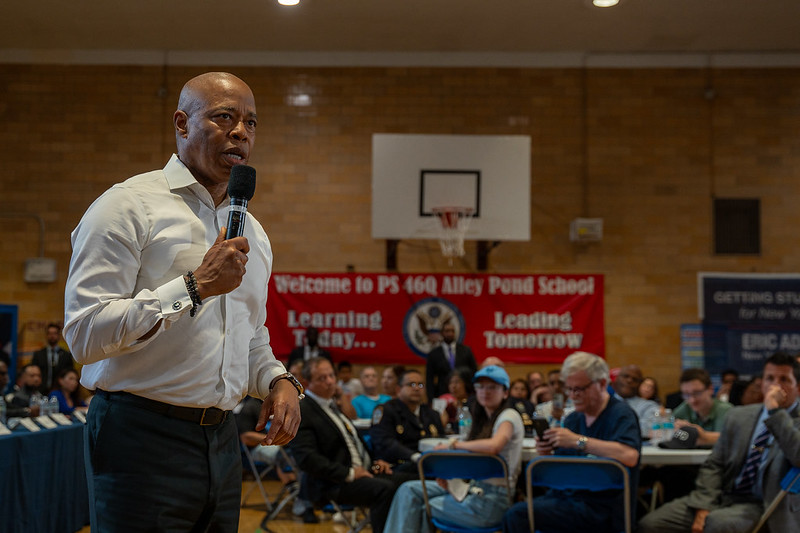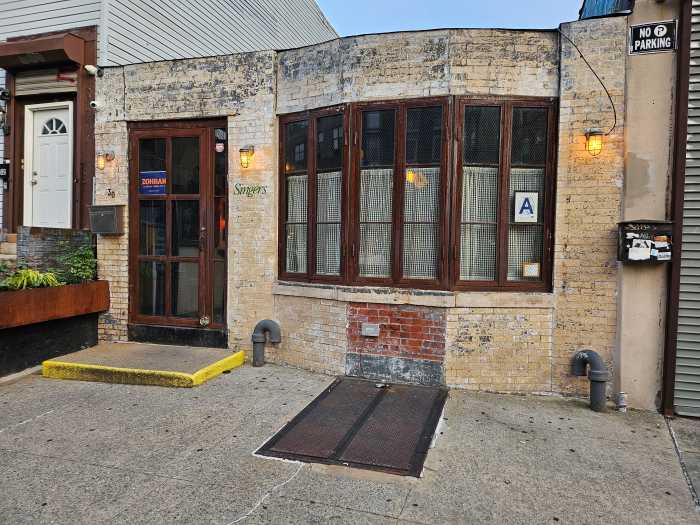By Cormac Flynn
Roughly 46 million Americans lack basic health insurance. According to the Kaiser Family Foundation, some 30 million of them are in households with incomes less than double the official poverty level. These people live at the edge of a precipice, where a single bout of mild illness can start an avalanche that will bury their dreams and stunt the opportunities of their children. In fact, the Institute of Medicine estimated that 18,000 men, women and children die in America each year simply because they lack health insurance. That was in 2004 and the number of uninsured has only risen since then.
President Obama has several worthy goals for healthcare reform: Banning “pre-existing condition” exclusions, capping out-of-pocket expenses, keeping insurers from dropping people when they get sick or old, providing aid and tax credits to help working families cope with the costs of coverage, encouraging preventive care and better medicine, “bending the cure” of health inflation that strains public and corporate budgets, etc. But for progressives there is one goal that stands out as the great moral imperative — to secure health coverage for every American regardless of income, age, gender or race.
Or at least it was so. But in the chaos of the fringe-right’s town hall Tet Offensive, House progressives — including Manhattan Representatives Jerry Nadler, Carolyn Maloney and Nydia Velazquez, as well as perennial mayoral candidate Anthony Weiner — have apparently lost their heads. They now vow to kill universal coverage unless it comes packaged with an untested strategy for cost containment called “public option.”
Here’s how “public option” is supposed to work: Consumers are given the option of choosing a public (that is, government-managed) health insurance plan in place of one of the for-profit and nonprofit plans currently in the marketplace. The policy purpose is cost containment, the theory being that government-run plans have lower overheads and lower rates of cost inflation than private plans. (Any reasonable analysis of Medicare and Medicaid will bear this out.) The lower premiums that would result would pressure private insurance companies to reduce overhead and profits to lower their own rates. Furthermore, the desire to protect the taxpayer’s purse would give a government-backed program an incentive to use its leverage to force down the rates paid to doctors, nurses and hospital staff in the same way Wal-Mart pressures manufacturers and farmers to slash costs.
Although there is some debate about where startup costs would come and how deficits would be handled, Obama and most progressives and liberals (myself included) support the idea of a “public option.”
Indeed, if not for Obama’s embrace, the idea would not even be on the table. But it is a long way from supporting a good policy notion to making it the acid test of reform. The simple fact is that “public option” is not necessary to achieve the progressive priorities of covering the uninsured and protecting the currently insured. For instance, the Netherlands achieved affordable, universal coverage through a 2005 set of reforms that are essentially the same as the current Obama package, minus the “public option.” Closer to home, Massachusetts has achieved universal coverage with a similar, but much less muscular, model that also passed on “public option.”
Left-leaning healthcare experts like Henry Aaron of the Brookings Institution and Jonathan Gruber of M.I.T (both of whom support “public option”) also dismiss the suggestion that “public option” is essential even to its own goal of cost control. The proposed regulatory and delivery reforms have proven track records of keeping down costs, while the impact of “public option” remains speculative. Even the Commonwealth Fund, among the most vociferous proponents of “public option,” found that Obama’s reform package would save $1.2 trillion over 10 years, reduce the annual growth in health spending from 6.5 percent (current) to 5.8 percent and save American households an average of $1,576 a year — without “public option.”
It should be said that the same Commonwealth Fund report also found higher savings (an average of $652 more per household) with “public option” or even with the proposed “co-ops” compromise ($58 more). Green eyeshade stuff for sure, though the difference between $1,576 a year and $2,228 a year is appreciable. But is it really so essential that the entire relief package — including the dream of healthcare for all — needs to be sacrificed for it? So essential that, to be blunt, the lives of 18,000 low-income Americans per year need to be sacrificed for it?
There is something inexpressibly sad about the spectacle of progressives behaving like “Blue Dogs” and putting concerns about cost containment ahead of the right of poor and working families to healthcare. Almost as disturbing is the level of vitriol that “public option” militants are now directing at the very Democrats trying to get reform.
“The past few days saw the White House capitulate to Republican scare tactics and abandon the ESSENTIAL public option only to see the White House blink again,” falsely claimed one e-mail I recently received. (Obama’s position hasn’t changed in two years). Reeking with condescension, the message went on to warn of an impending “colossal rookie mistake” and “retreat” by the president. The apparent logic was that health reform is under assault, so we should train our fire on its chief champion.
Another e-mail labeled Democratic Senators Ben Nelson, Kent Conrad and Max Baucus as being “bought and paid for” by insurance interests and “selling Democrats out for boatloads of special-interest cash.” Really? The senators in question represent Nebraska, North Dakota and Montana, where unemployment is low, Republican voting is high and mistrust of the public sector in general — and Washington in particular — is deeply ingrained. So isn’t it just possible that their irritating centrism is shaped by constituents and consciences rather than bribery? Even if you don’t think so, it is a strange kind of advocacy to insult the people whose votes you most need.
For many, the root of this venom appears to be a shared delusion with the right that a public plan would “open the door” to a single-payer government takeover of health insurance. As Obama and his surrogates have pointed out, such fanciful scenarios are ridiculous. America has had public universities since the days of the land grant, yet private colleges remain vibrant. Universal primary-education mandates, with a public option in the form of the public schools, have yet to chase private and religious instruction from the scene. As the president himself noted recently, United States Postal Service Express Mail and Parcel Post service have not frozen the market for FedEx, UPS et al. (He might have added that bicycle couriers are not put out of work by First-Class Mail.) Nor has Social Security (which is not an “option”) put paid to private pension and retirement schemes. Come to that, Medicare and Medicaid haven’t led to single-payer in more than 40 years of existence.
If there are not 60 votes in the Senate to block a Republican filibuster of “public option,” as seems likely, will the House’s new Progressive Death Panel really pull the plug on America’s poorest and most vulnerable, as they pledge to? I don’t know, but for anyone who remembers the Clinton administration, the consequences of such a betrayal would be as familiar as they would be severe. And it seems likely that such an action would also pull the plug on the long liberal quest to make healthcare a right rather than a privilege. We are lucky to have gotten this second chance in just 15 years; I do not think we would get a third as quickly.
Perhaps the president enraged progressives by knocking down the right-wing paranoia about a creeping government monopoly, trampling their own unrealistic expectations in the process. Perhaps they are just confused by the antics of the right, and lashing out like rioters who burn their own neighborhoods. But whatever the reason, Nadler, Maloney, Velazquez, Weiner and their colleagues are holding reform — and the hopes of millions of struggling working families — hostage to their new dream of “public option.” Let’s all just hope they come to their senses.
Flynn worked for a decade as a campaign consultant and staffer to Democratic candidates before starting his current career teaching state-level environmental advocates across the country to increase their political impact. He is a lifelong Village resident.



































